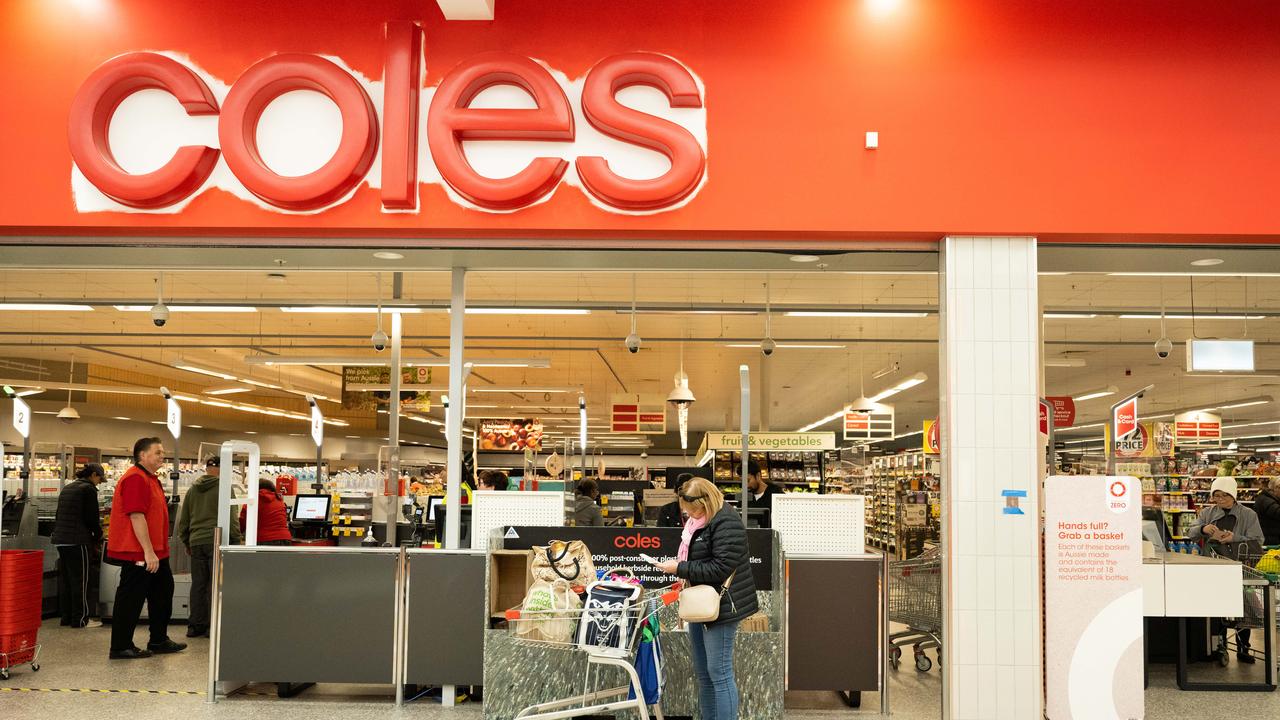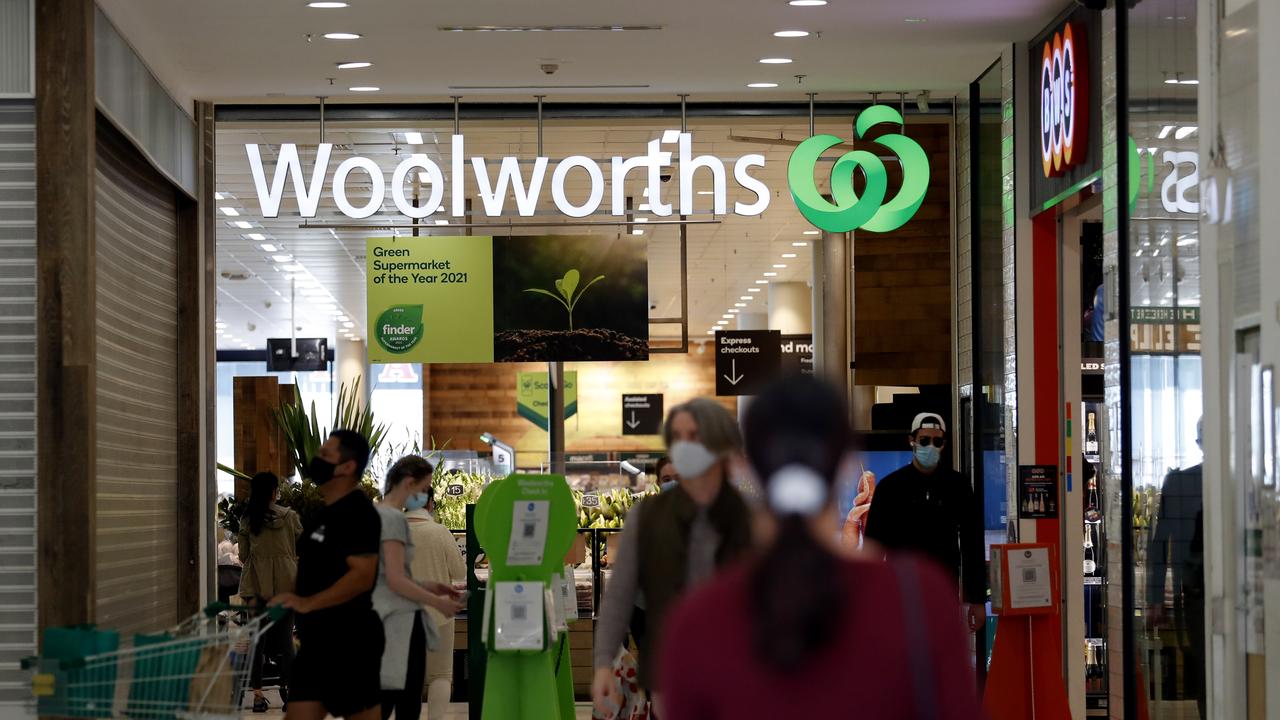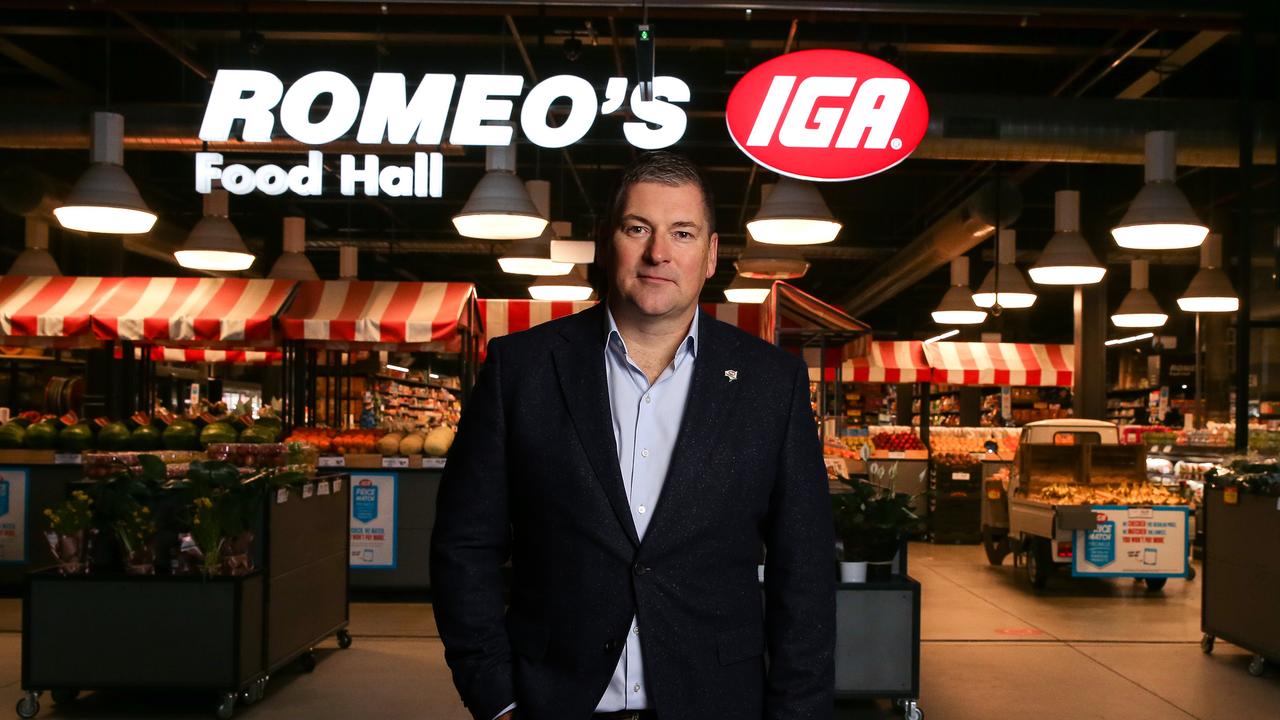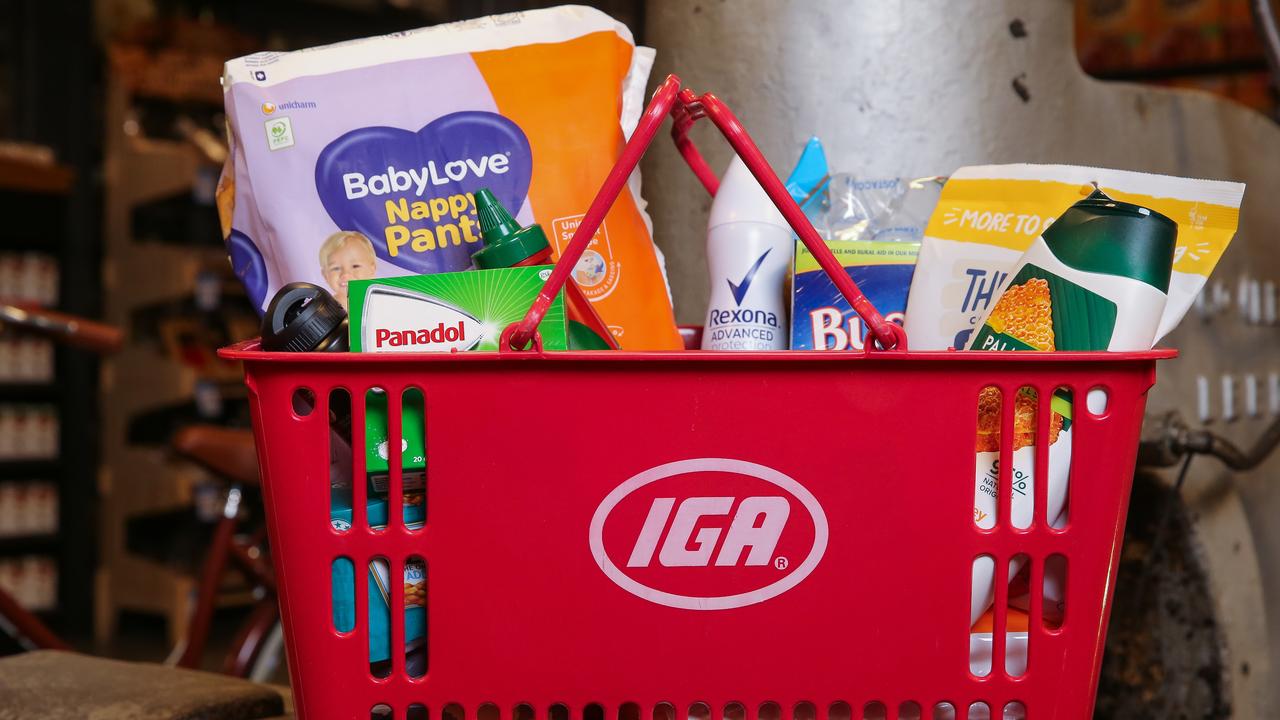Supermarket loyalty drops amid cost-of-living crisis, Coles and Woolworths report
As the cost-of-living crisis pressures households, major supermarkets have noted shoppers changing their habits.
Rising cost-of-living pressures have led to customers increasing the amount of supermarkets, grocers and food sellers they visit in order to capitalise on savings.
Fronting a parliamentary inquiry into economic dynamism, competition and business formation, representatives from major supermarkets Coles and Woolworths said they had noted the change in behaviour.
Coles’ government and industry relations manager Vittoria Bon said customers were now “more selective in terms of where they shop”.
“There’s a move away from (the) once-a-week, large grocery shop,” she told the committee.
“So people might shop around daily or every second day rather than one weekly shop. People do pay attention to when there are specials which are released at different points in time.

Woolworths Group chief commercial officer Paul Harker said shoppers had a “very low loyalty grocery score”, with less than 10 per cent of their base customers spending 90 per cent of their weekly grocery shopping at Woolworths.
Research by the supermarket giant also found 17 per cent of Woolworths shoppers would purchase from another speciality retailer “within the hour” after shopping with the supermarket.
Mr Harker noted fruit and vegetable prices were dropping after record highs and the biggest price increases were in dairy due to the “significant lift in farmgate milk prices”.
Russia’s invasion of Ukraine had also continued to affect product categories that relied on grain and oil, Mr Harker said.
The Woolworths boss also shared insight into how weekly specials are calculated.
“In terms of building catalogues, agreeing things with replenishment, making sure we’ve got stock and agreeing the deal with the supplier, (we would) generally make those decisions eight to 12 weeks out from the special actually appearing in store,” he said.

Metcash Food chief operating officer Grant Ramage said stronger competition laws were needed. The wholesale distribution company is the conglomerate behind IGA and Foodland networks, which are owned by independent operators.
Mr Ramage called for the application of a “test for acquisitions” before the introduction of a major retailer to ensure it doesn’t automatically dominate the market. He said this would increase competition and help a range of factors, including price.
This would also prevent major retailers from “groups acquiring or attempting to acquire independents”, Mr Ramage said.
“Supermarkets don’t just compete on price you pay at the checkout but the frequency of the offers and the types of promotions they run, the range of products they sell, and the quality of service delivered in the store,” he said.

He said exclusivity deals by major supermarket also reduced the supplier pool.
“Inevitably, that means that we will have less competition, pay higher prices and be unable to be competitive and offer those prices to shoppers,” he said.
“More action like that suddenly makes it very hard for us and is not, I think, in the interest of the Australian community.”
According to Statistica, Woolworths Group had 37.1 per cent of the market share for grocery retailers in the 2021-22 financial year, with Coles Group holding 27.9 per cent. Aldi had 9.5 per cent and IGA 6.9 per cent.

The parliamentary inquiry comes after concerns a lack of market competition has made Australia’s economy less resilient, with the committee analysing unbalanced market power in a variety of industries from supermarkets to banking.
Committee chair and Fraser MP Daniel Mulino said key concerns for the inquiry would be the extent market power had “undermined productivity, stifled wages, created more fragile markets and led to higher mark-ups”.
“It is also timely that as a committee we explore economic plans that better equip Australia in the face of global uncertainty,” he said.
“As the nation emerges from the pandemic, it is critical that we renew our focus on competition and business dynamism to boost our productivity for the benefit of all Australian workers and consumers.”
The inquiry continues on Wednesday.



